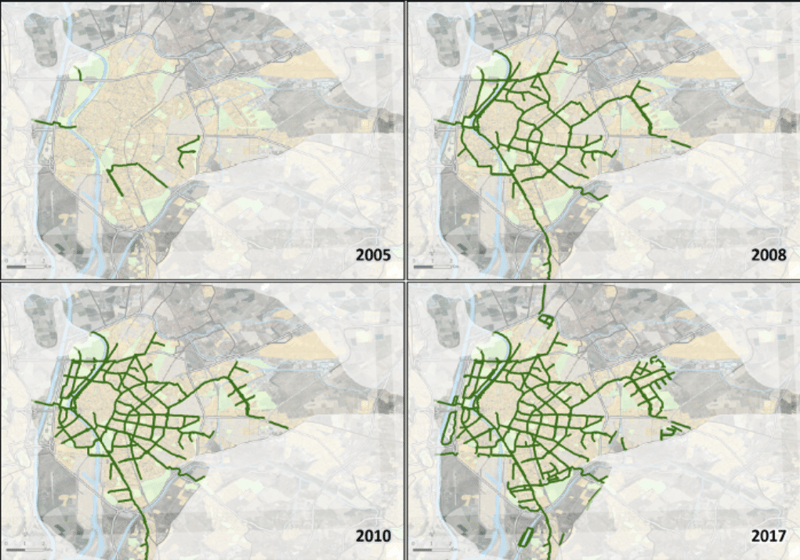Cycling Infrastructure: Leading Cities Creating Cycling-Friendly Environments
Cycling infrastructure is transforming urban mobility in cities like Seville, Spain, and Buenos Aires, Argentina. These cities are leading the way in promoting cycling as a sustainable mode of transport, showcasing how dedicated policies and investments can create safer, more efficient, and environmentally friendly urban environments.
Seville: A Spanish Cycling Success Story
Seville's transformation into a cycling-friendly city is particularly notable. In the early 2000s, the city had minimal cycling infrastructure, but a strong political will and community advocacy led to the rapid development of a comprehensive bike network. According to euronews, by 2011, Seville had constructed over 120 kilometres of bike lanes, which were largely separated from traffic, ensuring safety and convenience for cyclists. This infrastructure led to a significant increase in cycling, with daily trips rising from 13,000 in 2006 to 72,000 by 2011. The city also implemented a bike-sharing system, SEVici, which further encouraged cycling as an alternative to driving (Homepage — Streetsblog USA).

Buenos Aires: Leading the Way in Latin America
Buenos Aires has followed a similar path, embracing cycling as a key element of its sustainable urban transport strategy. The city introduced extensive bike lanes and launched the EcoBici bike-sharing program, making cycling accessible to residents and visitors alike. These efforts have not only reduced traffic congestion and pollution but also improved public health by promoting active lifestyles(euronews).
The benefits of these cycling initiatives are manifold. They contribute to reducing carbon emissions, ease traffic congestion, and improve public health. Moreover, by reclaiming space from cars and prioritizing bicycles, these cities have created more liveable, people-centred urban spaces. The success of Seville and Buenos Aires serves as a model for other cities in Latin America and beyond, demonstrating that with the right infrastructure and political commitment, cycling can become a central part of sustainable urban transport.
The Broader Benefits of Promoting Cycling
The experiences of Seville and Buenos Aires illustrate the numerous benefits that come with promoting cycling as a sustainable mode of transport. First and foremost, cycling is an environmentally friendly alternative to motorized vehicles. By choosing to cycle instead of drive, individuals contribute to reducing greenhouse gas emissions, helping cities meet their climate goals and improving air quality.
Cycling also offers significant public health benefits. Regular cycling is an excellent form of exercise, promoting cardiovascular health, reducing obesity rates, and lowering the risk of chronic diseases. Furthermore, cities that invest in cycling infrastructure often see reductions in traffic accidents, as dedicated bike lanes and safety measures protect cyclists and pedestrians alike.
Economically, cycling is an affordable mode of transport that requires minimal investment compared to car ownership. This affordability makes it accessible to a broader segment of the population, including low-income residents who may not have access to other forms of transportation. Additionally, the promotion of cycling can boost local economies by increasing foot traffic to businesses and reducing infrastructure costs associated with maintaining car-centric roadways.
Share your story
Do you have an innovation, research results or an other interesting topic you would like to share with the professionals in the infrastructure, traffic management, safety, smart mobility and parking industry? The Intertraffic website and social media channels are a great platform to showcase your stories!
Please contact our Sr Brand Marketing Manager Carola Jansen-Young.
Are you an Intertraffic exhibitor?
Make sure you add your latest press releases to your Company Profile in the Exhibitor Portal for free exposure.



